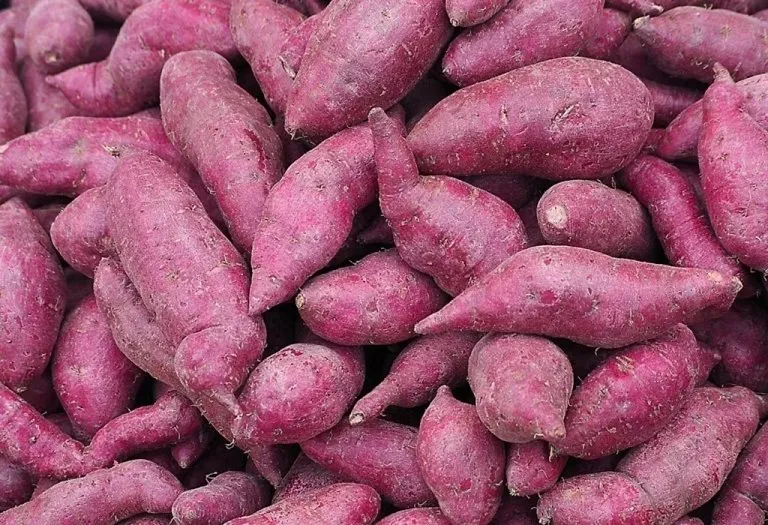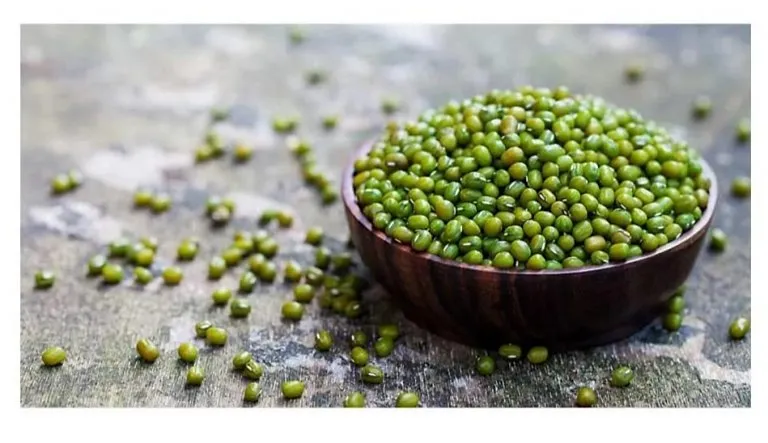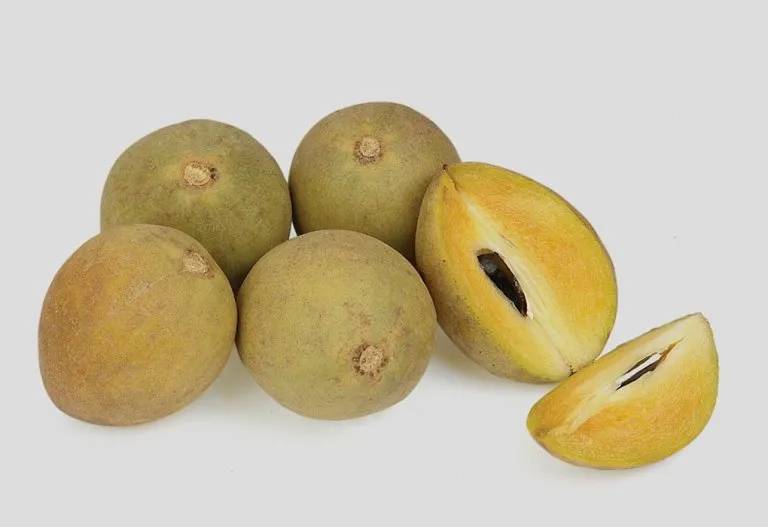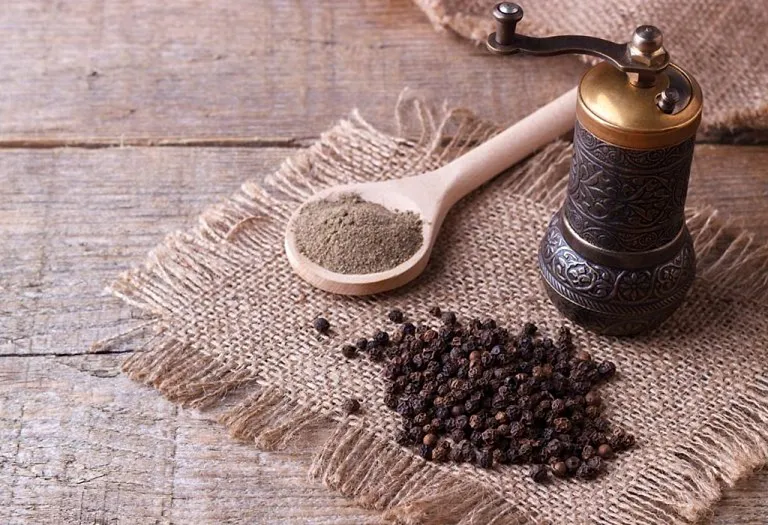Eating Yam in Pregnancy – Benefits & Side Effects

Pregnancy is undoubtedly a beautiful phase, but it is during this time that a woman must be extremely careful about her food choices. If you are pregnant or planning a family, a healthy diet is crucial for your well-being and the health of your future child. Eating nutritious food will provide your baby with all the necessary nutrients required for his proper growth and development. Yams would make a healthy addition to your diet as they are a rich source of fibre, antioxidants, potassium, and other nutrients. However, many women wonder if yams are safe to include in a pregnancy diet. If you have your doubts too, read on to know the truth about consuming yam during pregnancy!
Is It Safe to Eat Yams During Pregnancy?
Yam is a healthy root vegetable that is known to possess several nutrients and minerals. Today, we will learn whether yam is good for pregnancy.
To answer the popular question, yams would make for a safe addition to your pregnancy diet. It is imperative for pregnant women to eat proper nutrients so that the baby grows and develops healthily. Thus, one can not ignore yams, which are low in fat and sodium, rich in antioxidants, and high in potassium and fibre. Yams taste delicious and are absolutely healthy, but only if they are cooked well. Fresh yams are perfectly safe to eat. Cooked yams are also healthy, but if they are refrigerated for several days, bacteria may grow, and if consumed, they can cause food poisoning during pregnancy.
Nutrients Present in Yams
Yams are a perennial vine that is cultivated for their rich nutrients. An in-depth analysis of nutrients is given in the table below:
| Principle | Nutrient Value |
| Carbohydrates | 28 g |
| Protein | 1.53 g |
| Total Fat | 0.2 g |
| Cholesterol | 0 mg |
| Vitamin C | 17.1 mg |
| Vitamin A | 138 IU |
| Sodium | 9 mg |
| Calcium | 17 mg |
| Iron | 0.54 mg |
| Energy | 118 calories |
Source: USDA (1)
Health Benefits of Eating Yams for Pregnant Women
By now, you know that yams are high in nutrients and can be very beneficial for the health of a woman during pregnancy. Some of the benefits are given below –
1. Prevents the Chances of Low Birth Weight in Babies
Yams are high in nutrients, especially Vitamin B6. Furthermore, being high in Vitamin B6, they also reduce the risk of low birth rates in babies.
2. Cures Morning Sickness
The most common symptom of pregnancy is morning sickness. According to Mayo Clinic, yams contain an adequate amount of Vitamin B6, which gives relief from vomiting and nausea (2).
3. May Help Prevent Cancer
Yams are a good source of beta carotene and Vitamin C. They are high in antioxidants, which, according to the NIH National Cancer Institute, can help fight cancer, common illnesses, and oxidative stress (3).
4. Helps Regulate Blood Pressure
Yams, being a storehouse of potassium, may keep the blood pressure under control.
5. May Prevent Anaemia
Yams are also a good source of minerals such as copper, zinc, and iron, which may help prevent and lower the chances of anaemia in pregnant women (4).
6. May Aid Digestion
Yams contain healthy starch, which is easy to digest. Plus, the dietary fibre in yams may prevent constipation, thus aiding digestion-related problems (5).
7. May Strengthen the Immune System of the Baby
Yams contain 166 IU of Vitamin A per cup of serving, which may make the baby’s immune system healthy and strong.
8. May Lower the Chances of Neural Tube Defects in the Baby
Yams are a good source of folic acid, which is essential to protect the baby from neural tube defects (6). Thus, eating yams may help your baby!
9. Strengthen the Bones
A healthy dose of calcium can be derived from yams for both the mother and the growing baby.
10. Prevents Premature Birth
An iron-rich diet containing yams can help prevent premature birth (7).
11. Enhances Energy Levels
The complex carbohydrates found in yams are a great energy source. They provide sustained energy, which is essential during pregnancy as energy requirements increase.
12. Supports Emotional Health
Yams can influence the production of serotonin due to their Vitamin B6 content. This neurotransmitter is important for mood regulation, helping pregnant women manage stress and mood swings effectively.
Side Effects of Consuming Yams in Pregnancy
While yams are beneficial in many ways during pregnancy, it’s important to consider the following potential side effects that might affect some individuals.
1. Risk of Allergies
Yams, like other foods, can cause allergic reactions in some people. Symptoms of a yam allergy might include itching, swelling, and respiratory issues. Pregnant women who have a history of allergies to other root vegetables should be cautious and consult a healthcare provider before adding yams to their diet.
2. High in Potassium
Although potassium is beneficial for maintaining healthy blood pressure levels, excessive potassium can be harmful, especially for those with kidney issues or conditions that require regulated potassium levels. Overconsumption of yams might lead to hyperkalemia, a condition characterised by too much potassium in the blood, which can be dangerous during pregnancy.
3. Gastrointestinal Discomfort
Yams are high in starch and fiber, which can lead to gastrointestinal issues like bloating, gas, and cramps if consumed in large amounts. Pregnant women are particularly susceptible to digestive problems, so it’s important to eat yams in moderation.
4. Interference With Medications
Yams contain certain compounds that might interact with medications, particularly those related to hormonal treatments and thyroid medications. Pregnant women should discuss their diet with their healthcare provider to avoid any potential negative interactions with their ongoing medications.
5. Kidney Stones
Yams contain elevated levels of oxalates, which may increase the risk of kidney stones (8).
How to Store and Eat Yams?
Yams should be stored in a dry place with some ventilation, but should not be refrigerated. Once cooked, you can freeze yams in an airtight container for a longer duration. Yams can be used in soups, roasted, and served in the form of stews. You can also enjoy boiled and mashed yams by drizzling them with butter, garlic, and herbs. You can also enjoy baked thin slices of yams during pregnancy. Yam flesh is also used in waffles, muffins, or biscuit dough.
FAQs
1. How many yams are safe to eat during pregnancy?
It is generally safe for pregnant women to include yams as a part of a balanced diet. However, moderation is key. A serving of one-half to one cup of cooked yams 2-3 times a week is considered safe and beneficial. If you have specific health conditions or dietary concerns, it’s best to consult with your healthcare provider for personalized advice.
2. Are there any specific types of yams that are better during pregnancy?
A common question that comes up is – Is wild yam safe during pregnancy? While all yams are nutritious, the variety known as wild yams is often highlighted for its health benefits, including its potential to ease morning sickness. However, it’s important to note that the nutritional content can vary slightly between different types of yams. Regardless of the type, ensuring that yams are properly cooked before consumption is crucial to avoid any health risks.
3. Can yams be eaten at any stage of pregnancy?
Yes, yams can be safely included at any stage of pregnancy. They are a rich source of vitamins and minerals beneficial throughout pregnancy. Early on, the Vitamin B6 in yams can help with nausea associated with morning sickness. Later in pregnancy, the iron and folic acid content support fetal development and help prevent anemia. Always ensure that the yams are well-cooked to avoid any digestive issues.
4. Can yams cause allergies in pregnant women?
Although an allergy to yams is rare, some individuals may have sensitivity to raw yams. Thus, eating or smelling them raw may elicit an allergic reaction (9).
5. Do yams increase the blood sugar levels when eaten during pregnancy?
Yams contain a considerable amount of carbohydrates, which are known to increase blood sugar levels (10). Considering the carbs, you should maintain moderation when consuming purple yams in pregnancy. Also, high carbs in yams and pregnancy may not work well; thus, it’s better to consult your doctor first if you have gestational diabetes.
In short, consuming yam is good for pregnancy. Yams are powerhouses of essential nutrients and vitamins. They have an abundance of benefits for pregnant women. This wonder vegetable keeps the nervous, digestive, and cardiovascular systems healthy. Adding yams to the diet can also help you lose weight. Thus, it is safe to add yams to your pregnancy diet, provided it is fresh and well-cooked!
Also Read:
Parsley in Pregnancy
Sweet Potatoes while Pregnant
Consuming Carrot during Pregnancy
Introduction to Radish while Pregnant
Was This Article Helpful?
Parenting is a huge responsibility, for you as a caregiver, but also for us as a parenting content platform. We understand that and take our responsibility of creating credible content seriously. FirstCry Parenting articles are written and published only after extensive research using factually sound references to deliver quality content that is accurate, validated by experts, and completely reliable. To understand how we go about creating content that is credible, read our editorial policy here.





































